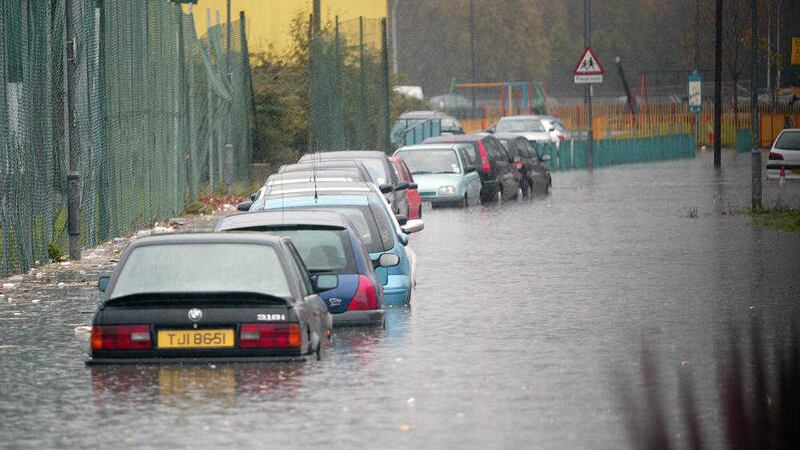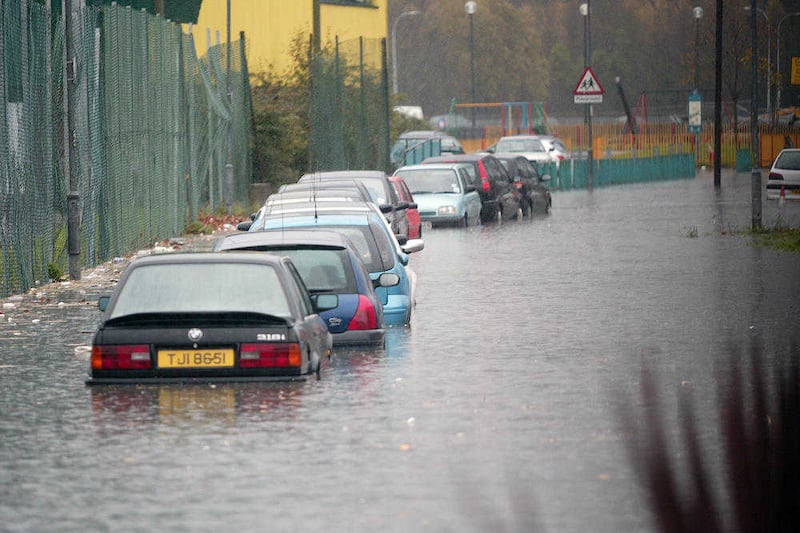A RALLYING cry has been issued to people all over Ireland to make their voices heard and demand that global political leaders finally take decisive action to tackle climate change.
The much-anticipated UN climate change talks, otherwise known as COP21, begin in Paris on Monday, bringing together political leaders and big-business interests, as well as non-governmental organisations (NGOs), from 150 countries.
They will work to hammer out a legally binding deal aimed at preventing global temperatures from exceeding two degrees Celsius above pre-industrial levels.
That can only happen if greenhouse gas emissions are slashed by up to 70 per cent by 2050.
It is expected that any agreement will come into force in 2020, when all existing commitments on emissions expire.
Why is it so important for ordinary people to get involved in the debate? Because they have the power to bring about change for the entire world.
The World Bank Group has reported that by 2030, 100 million more people could be forced into extreme poverty because of climate change, with global temperature rises leading to water shortages and the loss of farmable land – plunging the poor into even worse poverty.
Last week I wrote about my trip to Malawi with Trócaire to learn about how climate change is impacting some of the world’s most vulnerable people, leading to flooding, drought and hunger.
While in the city of Zomba, I met climate justice activist Lulu Maseko, who, as a third-level student, successfully battled with local authorities and the construction industry to stop historic mahogany trees being knocked down to make way for a bypass. She now works to encourage other young Africans to be proactive on finding solutions.
Her advice to her fellow Malawi citizens, and people everywhere, on how they could make a difference was simple but effective: “Achieving something doesn’t come in a flash... It takes time, a lot of input and a lot of energy. But with a little determination, small things, like a lack of funding etc, cannot stop you.”
That advice is timely, as people consider the potential long-term, devastating consequences of a failure by world leaders to agree ways to address global warming.
Most of us have heard scientists’ warning that a two-degree temperature rise would lead to changing eco-systems, unpredictable weather patterns, flooding and drought etc.
Oxfam this week published a report, entitled Game-changers in the Paris Climate Deal, in which it warned that developing countries’ economies face being “crushed under the double burden of climate change adaptation costs of almost $800 billion (£525bn) and more than twice that in economic losses every year by 2050 if global pledges to cut emissions are not improved”.
The charity has set out a number of potential targets for the Paris summit, including finding adequate funds to help countries adapt to the changing climate, encouraging “rich countries” to begin the process of phasing out fossil fuels and making provisions for damage caused by global warming.
“World leaders have the opportunity to change this in Paris. They need to put aside their self-interest and do what is best for the world," Oxfam Ireland’s chief executive Jim Clarken says.
"That means greater cuts to emissions and more climate funding so vulnerable communities already facing hunger, floods and droughts can survive. World leaders need to be clear that a strong deal is needed as a springboard for further global climate action.”
:: The Oxfam report is available at http://oxf.am/ZeoV.
People in Ireland won’t escape as the planet heats up. In a 2012 study, Galway researchers warned that the Irish Sea's level would rise by 18.5 inches by the end of the 21st century, leading to increased flooding along the east coast.
The European Centre for Climate Adaptation is suggesting that the effects of rising sea levels will become most apparent in Cork, Limerick, Dublin and Galway.
In Northern Ireland, the National Trust, which cares for more than 100 miles of coastline, has just published a report, called Shifting Shores – Playing Our Part at the Coast, demanding government action to ensure coastal areas are ready for the “enormous challenges” posed by severe storms and rising sea levels.
The trust wants what it describes as “a bold and imaginative approach” to coastline management, involving an understanding of how nature works, moving towards adaptation and away from maintaining engineered defences, including ending the “ineffective cycle of continually rebuilding hard sea defences and instead relocating buildings, infrastructure and habitats to safe areas further inland, at some risk locations”.
:: To download a copy of the report visit nationaltrust.org.uk/shiftingshores.
In 2010 Friends of the Earth reported that commercial properties along Belfast’s shoreline, including the Titanic Quarter, could be hit by regular flooding by the end of this century because of rising sea levels.
Five years on and FoE director James Orr has told The Irish News that the threat of severe flooding in Belfast has not gone away and there remains a pressing need to address the potential causes before it becomes a reality
“Climate change is one of the greatest challenges facing the world today, but it also presents an opportunity to build a better, more equitable and cleaner future,” he says, calling on people to make their voices heard ahead of the summit.
A group of NGOs and trade unions, cooperating as the Stop Climate Chaos coalition, want the public to join them tomorrow at 2pm in Writer’s Square, opposite St Anne’s Cathedral in Belfast as others take part in similar events in Newry, Dublin and Cork. The day’s events will begin with an ecumenical service of prayer and reflection for climate justice at St Anne’s Cathedral at 1:15pm.
Welcoming tomorrow’s rallies, the north’s Environment Minister Mark H Durkan, who is attending the UN talks, says he will “make it clear” that the region will “play its full part in contributing to the agreed emission reduction targets”.
The minister says he is “committed” to legislative change, adding: “I intend to issue, in the near future, a discussion paper to stakeholders seeking their views on proposals for a NI Climate Change Act.”







